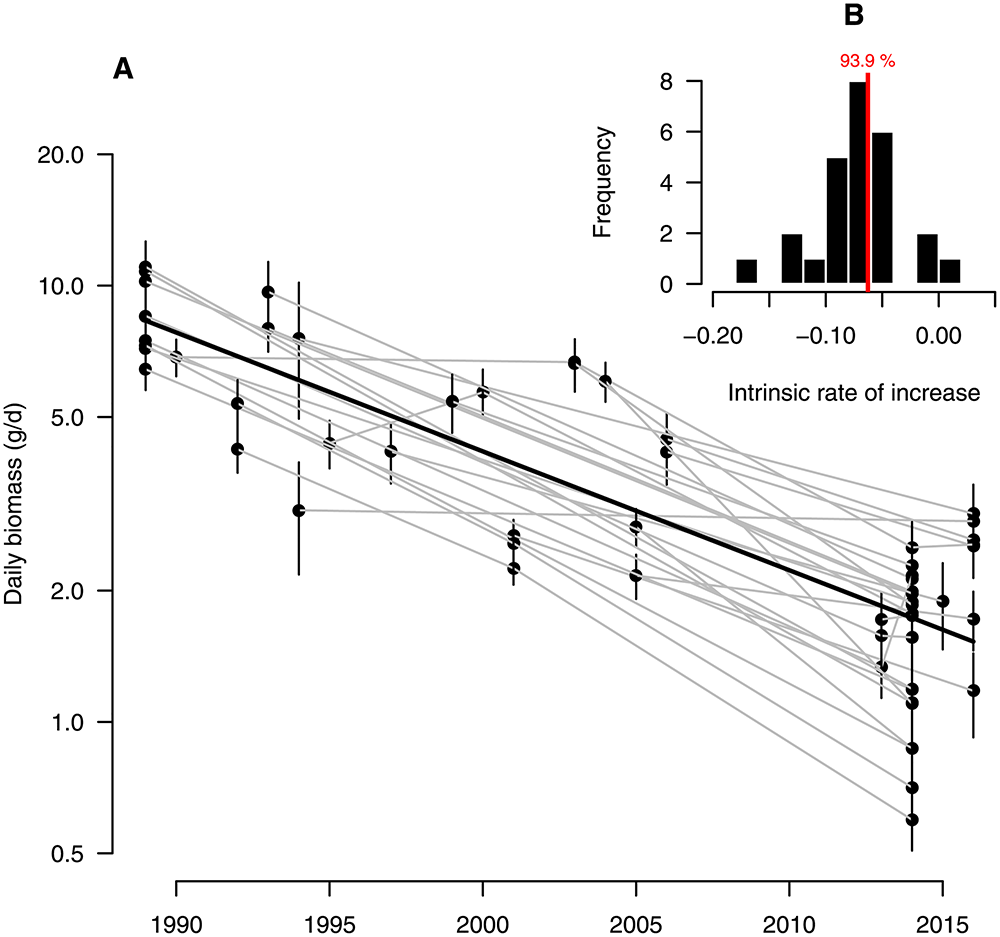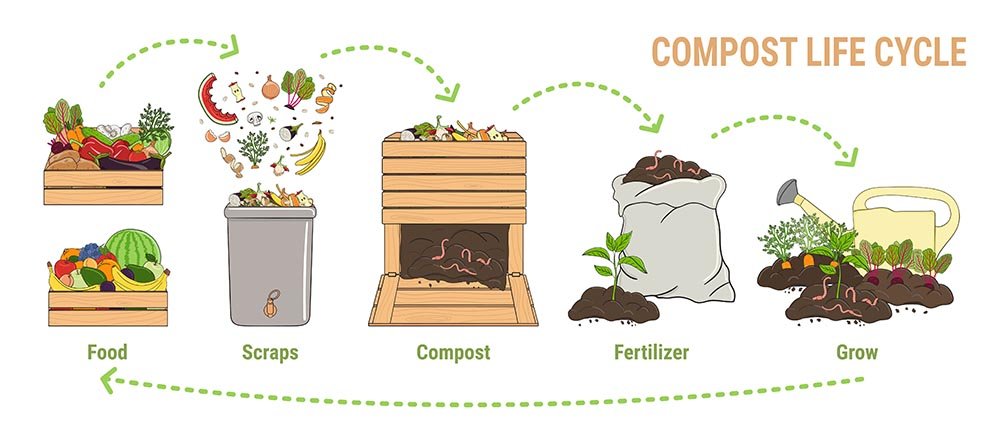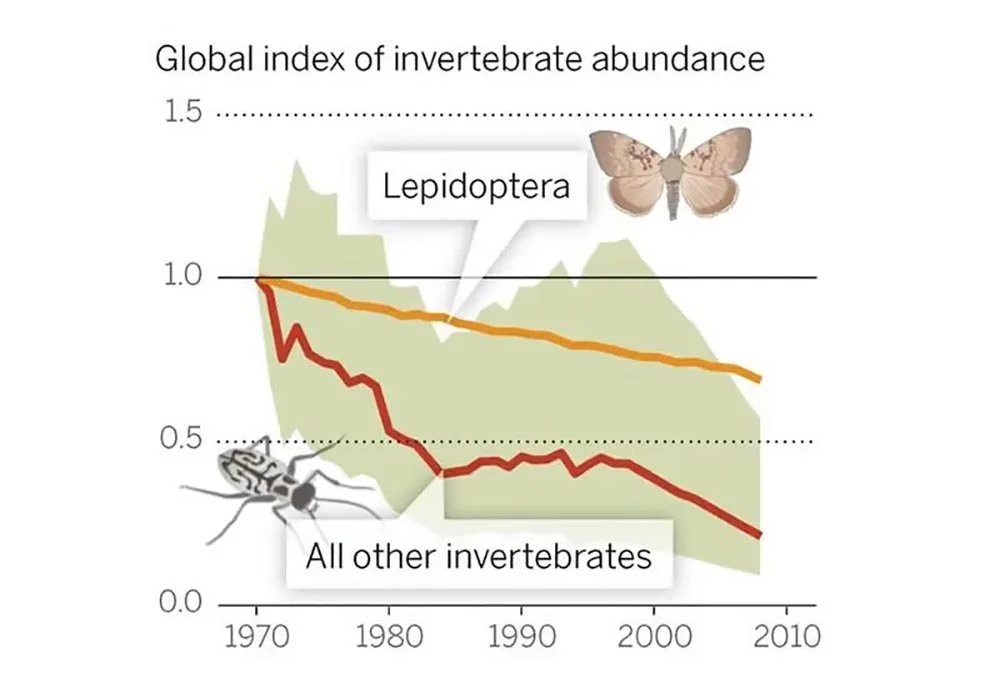Helping Insects Survive:
Ways You Can Make a Difference
What is the main problem facing insects around the world?
Why is it important to help insects survive?
How do bright lights at night harm insects?
Why are native plants better for insects than non-native plants?
How does composting help insects?
How does wearing clothes made from natural fibers help insects?
Why should people avoid using chemical herbicides and pesticides?
Why should we support owls and bats?
What way of helping insects surprised you the most?
Which of these suggestions might you do?
Insects are amazing creatures that live all around us. They help plants grow, feed birds and other animals, and keep nature balanced. But scientists have discovered something very worrying. Insect populations are shrinking quickly all over the world. Even in protected nature areas where humans don't disturb them much, insects are disappearing.
This is a big problem because many other animals depend on insects for food. Birds especially need insects to survive. When insects disappear, birds and other creatures struggle to find enough to eat. The good news is that there are many simple things we can do to help insects thrive again.
Why Insects Need Our Help
When we help insects, we also help ourselves.
Gardens with lots of insects are healthier and more beautiful. We get to see more birds singing in our trees. The whole web of life becomes stronger and more balanced.
Turn Off Lights at Night
You have probably seen moths flying around light bulbs at night. But bright lights can be dangerous for insects.
Scientists found that one-third of insects that get trapped near lights will die before morning. Light pollution changes how insects behave and can even make plant leaves too tough for insects to eat. Turn off outdoor lights when you don't need them. You can also use lights that turn on only when someone walks by.
Plant Native Plants
One of the best things you can do for insects is to grow plants that naturally belong in your area.
Local insects have lived alongside local plants for thousands of years. They have learned to eat certain types of leaves and visit specific flowers.
Many bees will only visit one type of flower, even if other flowers are growing right next to it. Plants that come from far away often don't help local insects.
Start Composting
Compost piles are like apartment buildings for insects.
Even in cold winter weather, compost stays warm inside, giving insects a safe place to live. As the compost breaks down, it makes the soil richer and better for plants. This creates even more food and homes for garden insects.
Leave Fallen Leaves Alone
When trees drop their leaves in fall, many people rake them up right away.
But leaf litter is actually a crucial habitat for insects. Scientists discovered that raking up leaves reduces the number of moths and butterflies by almost half. Save yourself work and help insects by letting leaves stay where they fall naturally.
Create Small Gardens Anywhere
You don't need a big yard to help insects.
Even a small window box or balcony garden can make a difference. Pots full of native flowering plants provide important rest stops for pollinators flying through cities.
Use Medicine Carefully
Most people don't realize that human medicines can affect insects.
When we use too many antibiotics and other drugs, they eventually end up in rivers and streams. This harms many types of insects and other wildlife. Use medications exactly as your doctor tells you to, and dispose of expired medicines properly.
Add Rocks and Gravel
Most of the world's 20,000 bee species make their nests in the ground, not in hives.
Scientists found that sprinkling rocks and gravel on soil helps ground-nesting bees the most. Different types of bees need different nesting conditions, so adding variety to your garden helps more species survive.
Buy Organic Food
There's clear evidence that pesticides used in farming are killing insects.
Organic food is grown without synthetic pesticides. When you buy organic products, you support farming methods that are safer for insects.
Choose Natural Fabrics
Tiny pieces of plastic are everywhere in our environment, and they're hurting pollinators.
These microplastics come from synthetic clothes like polyester, nylon, and spandex. Every time these clothes are washed, they release millions of plastic fibers. Natural fabrics like wool, silk, and linen don't create microplastics.
Pull Weeds by Hand
Chemical weed killers are very harmful to insects.
Glyphosate, one of the most common herbicides, damages insect immune systems. Instead of spraying weeds with chemicals, pull them up by hand. This is also better for your health.
Create Shady Areas
Insects are very sensitive to temperature changes.
As climate change makes weather more unpredictable, insects struggle to keep up with the changing conditions. Creating shady spots in your yard gives insects cooler places to rest when temperatures get too hot.
Help Scientists Count Insects
Scientists need better information about insect populations.
You can help by participating in butterfly counts and other citizen science projects. These usually involve spending just 15 minutes counting insects in a nearby area.
Support Bats & Owls
Bats and some owls eat huge numbers of insects. They help keep insect populations balanced naturally.
When bat and owl populations decline, farmers often use more pesticides to control insect pests.
Conclusion
Insects face many challenges in today's world, but there are countless ways we can help them survive and thrive.
From simple actions like turning off lights to bigger changes like choosing organic food, every effort makes a difference.
When we help insects, we help create a healthier, more balanced natural world for everyone.
► COMPREHENSION QUESTIONS — please answer with complete sentences
What is the main problem facing insects around the world?
Why is it important to help insects survive?
How do bright lights at night harm insects?
Why are native plants better for insects than non-native plants?
How does composting help insects?
How does wearing clothes made from natural fibers help insects?
Why should people avoid using chemical herbicides and pesticides?
Why should we support owls and bats?
What way of helping insects surprised you the most?
Which of these suggestions might you do?
► From EITHER/OR ► BOTH/AND
► FROM Right/Wrong ► Creative Combination
THESIS — Argue the case that insects are pests and the fewer insects on Earth the better.
ANT-THESIS — Argue the case that insects may be small (and sometimes annoying) but are vital to the health of our ecosystems.
SYN-THESIS — How might you bring these two perspectives together?





















